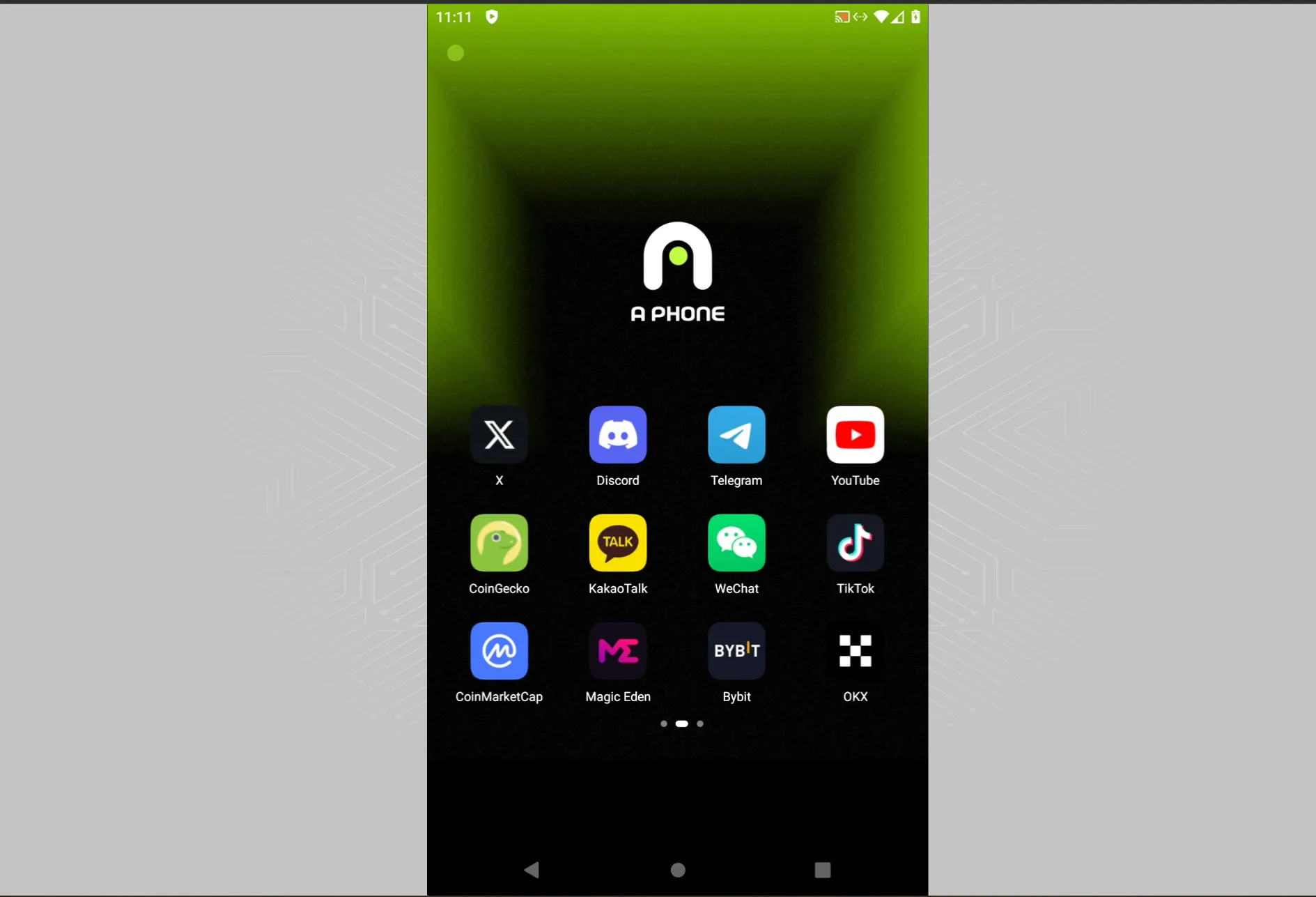A new virtual smartphone application, Aphone, has been launched on Solana’s blockchain and Aethir’s decentralized cloud infrastructure, targeting users with legacy hardware and users in emerging economies. Here’s how it works and why it’s making waves:
Breathing new life into outdated hardware:
Aphone offers a virtual smartphone experience that users can access through their current devices, whether they are using a browser, Android or Apple device. It bypasses the hardware limitations of older smartphones by leveraging Aethir’s decentralized, cloud-based GPU computing infrastructure. This allows users to run Web3 applications smoothly without the need for local hardware upgrades.
To onboard users to Web3:
The team behind Aphone sees the virtual device as a gateway to the broader Web3 ecosystem. As smartphones become more prevalent in emerging markets, Aphone aims to provide access to cutting-edge Web3 applications, NFTs, DeFi platforms and blockchain games.
How it works:
Aphone runs on a decentralized cloud-based infrastructure, giving users access to apps and games that their physical devices may not be able to handle. Users pay $20 per year for access, which is made possible through the purchase of a non-fungible token (NFT) from Aphone, minted and burned on the Solana blockchain.

Stimulate Web3 adoption:
Leveraging Solana’s fast transaction speeds, lower fees and enhanced security, Aphone aims to deliver a seamless Web3 experience. The device’s native token, PHONE, is used for management and rewards, driving user engagement and participation in the platform.
Access to DePIN networks:
Additionally, Aphone offers access to decentralized physical infrastructure networks (DePIN) running on Solana, such as Helium, which rewards users for providing network coverage and validating transactions.
Aphone’s innovative approach to virtual smartphones shows the potential of decentralized cloud technology in bridging the gap for users with legacy hardware, making advanced Web3 applications more accessible to everyone.

